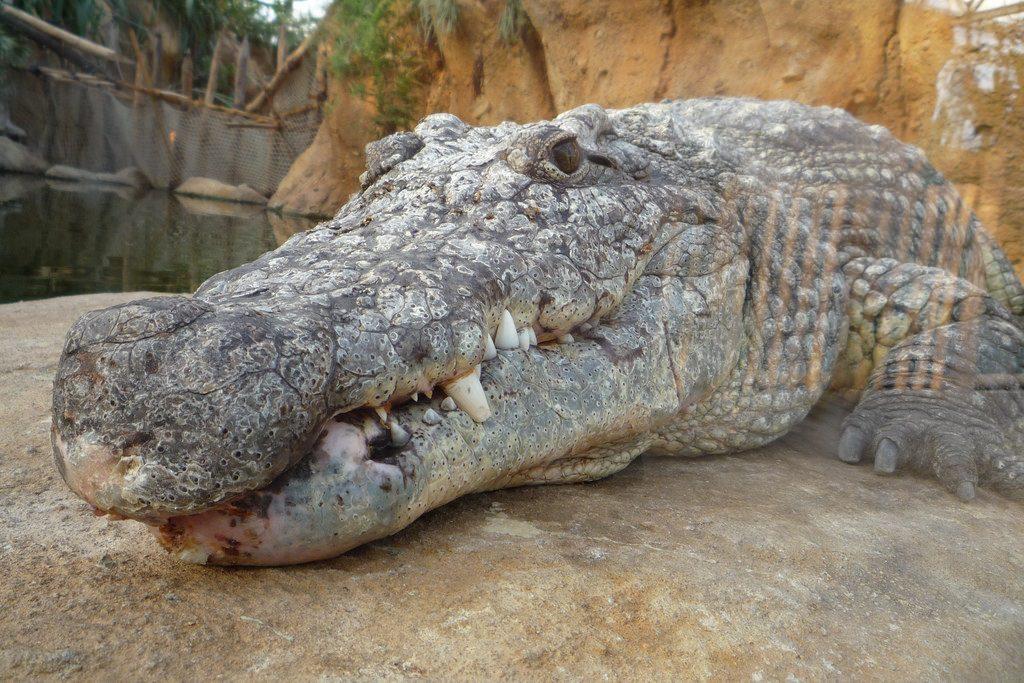Saving Solomon Islands from crocodiles: 14 years of RAMSI
Posted By Graeme Dobell on April 10, 2017 @ 06:00

In 2003, Solomon Islands stared into a national abyss—confronting ethnic conflict and state failure. The Melanesian nation appealed for help, prompting the largest, longest and most ambitious security effort ever mounted by the Pacific Islands Forum: RAMSI, the Regional Assistance Mission to Solomon Islands.
Led and largely financed by Australia, RAMSI forces started to arrive in Honiara on July 24, 2003. After 14 years, RAMSI will conclude on June 30, 2017. The price tag for the operation is close to $3 billion, most of it paid by Australia.
What did the Solomons, the Pacific and Australia get for $3 billion and 14 years? The official answer can come simultaneously from Australia and RAMSI, because RAMSI’s Special Coordinator has always been an Australian.
The final RAMSI Coordinator is Quinton Devlin and this column is based on his thoughts about the mission and its meaning (here’s the ASPI video interview [1]). He argues that RAMSI must be judged a ‘genuine success’ because of the size of the political and community disaster that Solomon Islands has avoided.
RAMSI, he says, ‘put an end to a dire humanitarian situation on Australia’s doorstep and reversed the decline of a disintegrating nation that threatened security and stability in the broader Pacific region. RAMSI halted Solomon Islands’ descent into lawlessness and towards economic collapse and state failure’.
But the criticisms of RAMSI are as big as its claimed achievements. The Mission was attacked as an ‘emerging parallel state’, for encroaching on Solomon Islands’ sovereignty, for heavy-handedness and ‘mission creep’.
Devlin’s response is that frequently ‘criticisms came from the political class in Solomon Islands, which in some quarters resisted RAMSI’s suggested good governance and financial reforms, and in others, weren’t happy that RAMSI was involved in the investigation and arrests of MPs’.
The Special Coordinator says the long foreign intervention enjoyed remarkable support from Solomon Islanders. Surveys conducted from 2006 to 2013 showed that popular support for RAMSI never dropped below 85%.
The big bill and the long stay reflect the ambition and scope of the original mandate agreed by Solomon Islands and the Forum, calling for state building, not just stabilisation:
- restore civil order [in Honiara and throughout the rest of the country, including confiscating illegal weapons, investigating and prosecuting criminal offences, strengthening the courts and prison system and protecting key government ministries]
- stabilise government finances [including securing revenue collection and controlling expenditure, strengthening financial administrative safeguards and obtaining donor and international financial institutions’ support]
- promote longer-term economic recovery and revive business confidence [including implementing economic reform, dealing with corruption and improving debt management]
- rebuild the machinery of government [including the functioning of the National Parliament, the Cabinet, the public service and the electoral process].
Devlin says Australia’s RAMSI role has ‘invigorated and reinforced Australia’s relationships’ across the South Pacific’. He calls the rebuilding of Solomon Islands one of Australia’s finest foreign policy achievements in recent decades: ‘It has made Australia and the region a safer place. It has also helped cement Australia’s leadership in the Pacific and as a security partner of choice’.
Yet RAMSI’s 14 year trek shows that ‘even with all the resources and good will in the world, there are limitations on what states can do to help other states address the causes of their insecurity, even while restoring that security’. Devlin says that RAMSI shows security and state-building interventions must be:
- welcomed by the host government and public
- viewed as providing the nation the time and breathing space to recover the lost ground and address the underlying causes of the conflict, rather than a panacea for all ills
- drawn from and endorsed by the region
- deployed and operated under a clear legal framework
- commenced with large numbers and superior firepower if restoring law and order
- not persuaded to drawdown quickly or look for an early exit strategy
- conscious that it could be an extended commitment of up to 15 years
Devlin says that ‘resetting and strengthening Westminster systems of government that jar with Melanesian concepts of power and patronage will necessarily be slow, incremental, often challenging and rarely linear’.
RAMSI will end in June, proud that it saved Solomon Islands from crocodiles. That’s more than a figurative boast. The destruction of all guns and disarmament of local police meant only RAMSI was legally allowed to possess or use guns. A crocodile cull was part of what RAMSI did to make Solomon Islands safer.
Article printed from The Strategist: https://aspistrategist.ru
URL to article: /saving-solomon-islands-crocodiles-14-years-ramsi/
URLs in this post:
[1] here’s the ASPI video interview: https://youtu.be/hfuhZ6BZLQI
Click here to print.